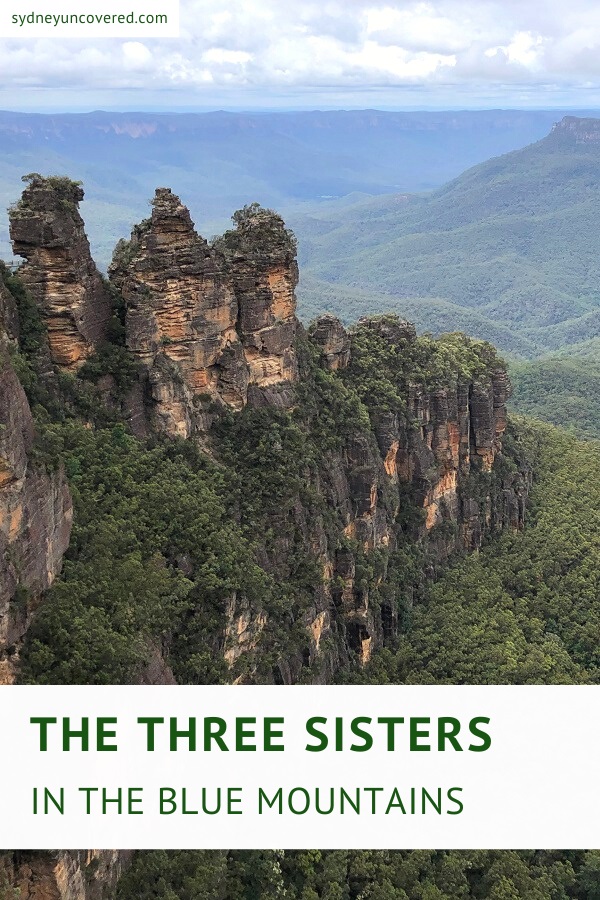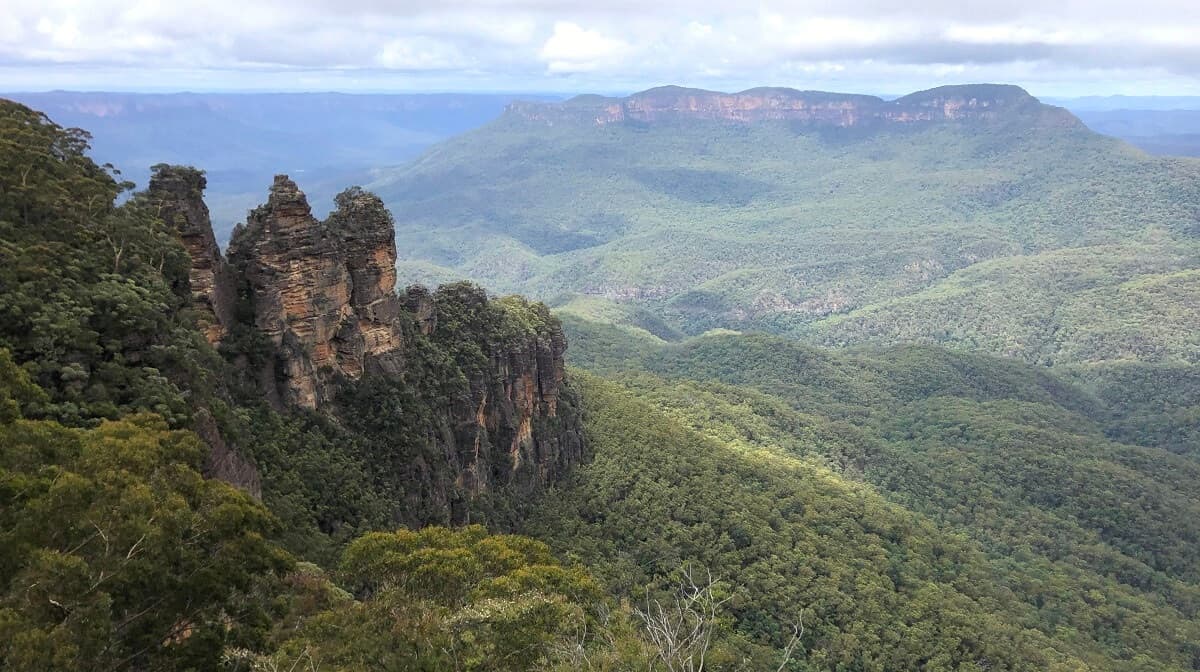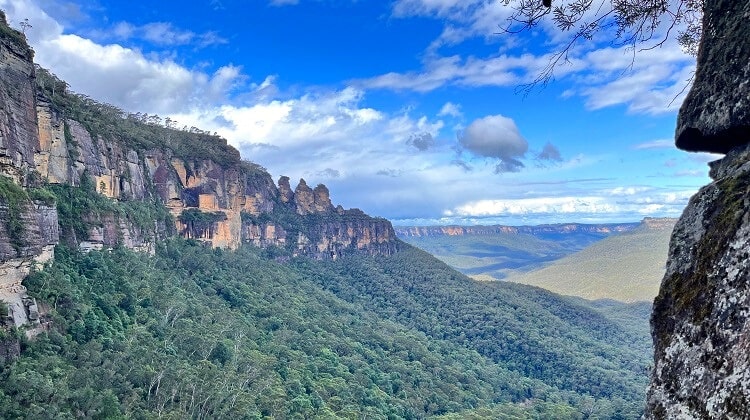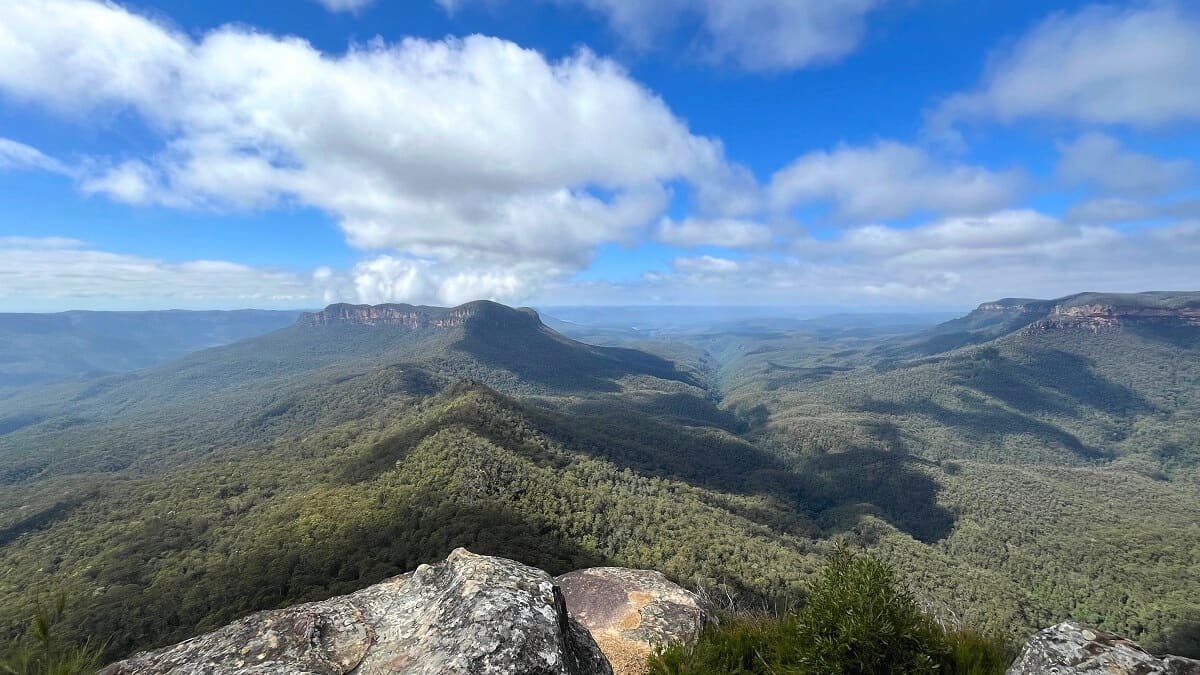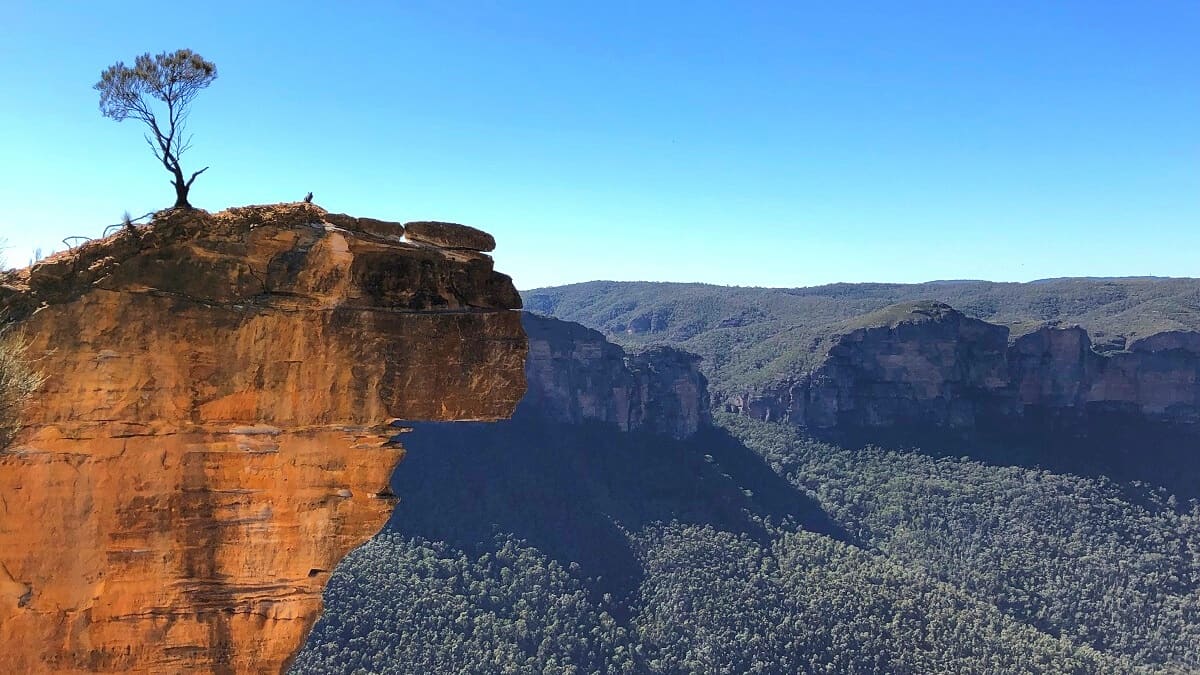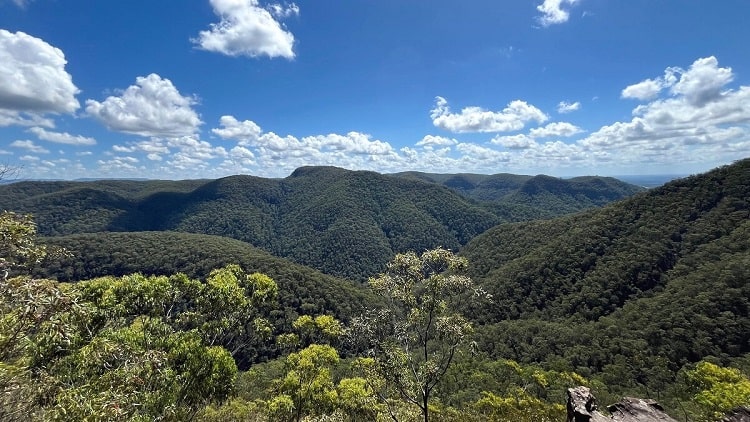Last updated: July 25, 2022
The Three Sisters is an iconic rock formation near Katoomba, facing the beautiful Jamison Valley. It is the most popular tourist spot in the Blue Mountains, attracting thousands of visitors every day.
A short walking track, starting from the information centre at Echo Point, allows visitors to see the Three Sisters from close by, with several scenic lookout points nearby to explore.
Keep reading to learn more about the Three Sisters, the walking track to get there, and the highlights along the way.
| Three Sisters Walk | |
|---|---|
| Distance: | 1 km (return) |
| Duration: | 45 minutes |
| Grade: | Easy (steep section at the end) |
| Dogs: | Not allowed |
How to Get There
The Echo Point and Three Sisters area is easy to get to by car and public transport, but it can get very busy there, especially on the weekends.
1. Car
Parking your car at Echo Point can be quite challenging on the weekends, but there are a few options. There is a small parking area at the end of Echo Point Road, but that fills up quickly.
Another option is to park on Cliff Drive just north of Echo Point. On busy days, you might need to park on the streets a bit further away.
2. Public Transport
The Blue Mountains line offers regular train services between Sydney Central Station and the Blue Mountains, stopping at Wentworth Falls, Leura, Katoomba, and beyond. Local bus services depart from the Katoomba town centre to the Three Sisters.
Alternatively, you can use the hop-on hop-off Blue Mountains Explorer Bus, which stops at the major sights in the Katoomba and Leura area, including the Three Sisters.
3. Organised Tour
If you don’t have access to a car and don’t want to travel by public transport, a professional day tour to the Blue Mountains is a good solution.
All tours visit Echo Point, and most will allow for enough time to be spent there to do the Three Sisters Walk.
Three Sisters Walk Track Notes
The Three Sisters Walk is an easy and comfortable walking path from the Visitor Information Centre to the Honeymoon Bridge at the Three Sisters.
The only challenging part is the bit at the end, where the track includes a short section of the Giant Stairway, which is quite steep.
The walk to the Three Sisters may be short, but there are many highlights. The below track notes describe the walk along the following seven highlights and landmarks:
- Echo Point
- Stone Archway
- Oreades Lookout
- Lady Game Lookout
- Giant Stairway
- Honeymoon Bridge
- Spooners Lookout
Here is a map of this fantastic walking track:
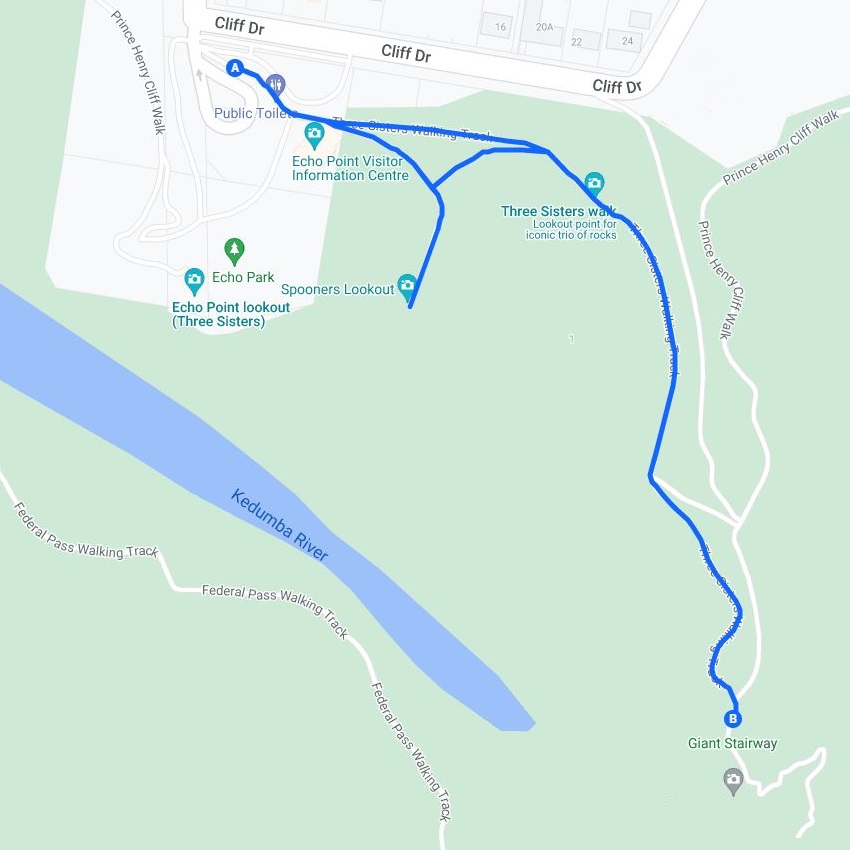
1. Echo Point
The walking track to the Three Sisters starts from the information centre, but before going there, it’s worth exploring Echo Point and its various lookout platforms.
With stunning views of the Three Sisters and the Jamison Valley, Echo Point is one of the most popular lookout points in the greater Blue Mountains region.
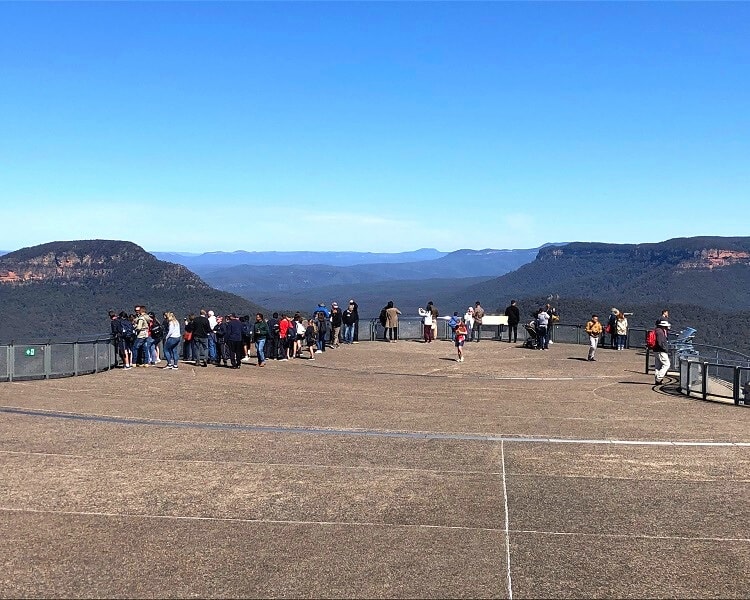
Echo Point is like a large square with lots of activity during peak season. There are multiple viewing platforms at different levels to explore.
Managed by the Blue Mountains City Council, Echo Point welcomes thousands of visitors each day, and for good reason.
Read more about Echo Point in our guide.
2. Stone Archway
From the Echo Point Lookout, make your way to the information centre, where you can access the walking path to the Three Sisters.
Housed in a modern building in the Echo Point precinct, the Blue Mountains Visitor Information Centre is open daily from 9 am to 5 pm and offers more information about the Blue Mountains and the Three Sisters.
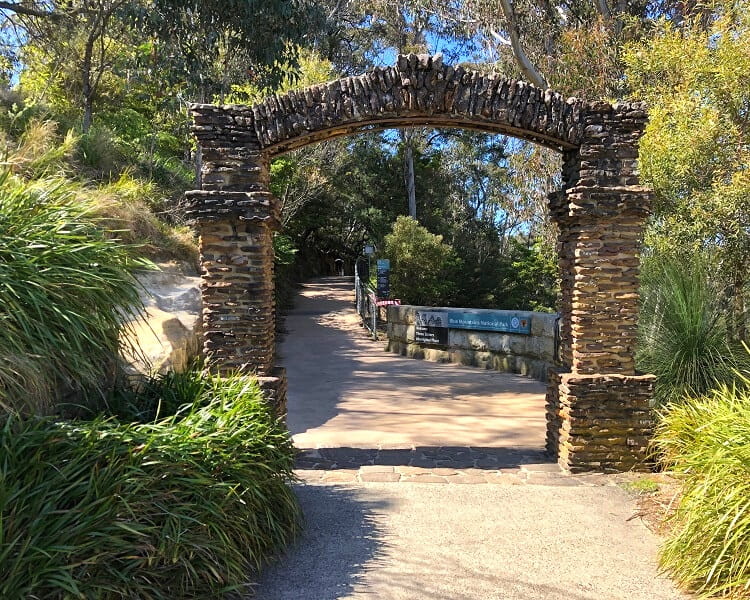
The entrance to the Three Sisters walk can hardly be missed, as it’s marked by a large stone archway next to the information centre.
The walking path is very well maintained, with several sandstone seats and interesting little animal sculptures along the way to discover.
3. Oreades Lookout
The walk soon hits an intersection where you can turn right to visit the Spooners Lookout. However, we recommend doing that as a detour on the way back.
Going straight, the first significant lookout point is the Oreades Lookout, a large fenced viewing platform with scenic valley views.
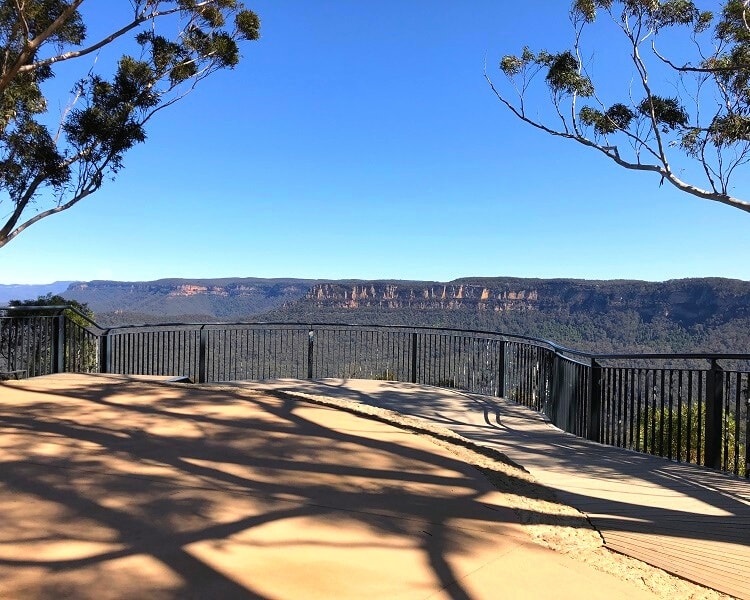
Although not very well-known, the Oreades Lookout is actually one of the better lookouts in the Katoomba region.
The views are fantastic, and the platform is also very spacious and well designed.
4. Lady Game Lookout
The next viewpoint is the Lady Game Lookout, a narrow, fenced lookout very close to the Three Sisters.
From the Lady Game Lookout, the path continues to the Three Sisters via a short section of the Giant Stairway.
5. Giant Stairway
Starting at the archway next to the Lady Game Lookout, the Giant Stairway is an impressive structure with more than 800 steel and stone steps heading into the Jamison Valley.
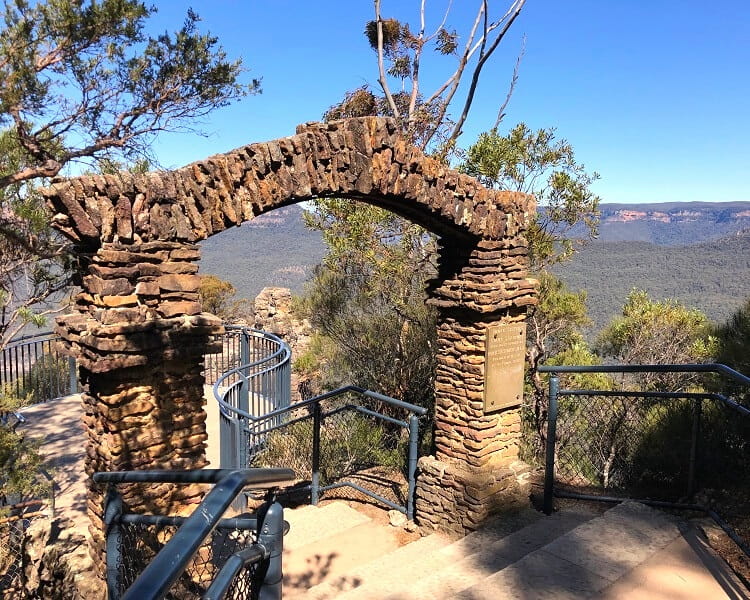
Luckily though, to visit the first of the Three Sisters, you only need to conquer a very short section of the Giant Stairway.
6. Honeymoon Bridge
The last section of the Three Sisters Walk is the so-called Honeymoon Bridge, which connects to a rock overhang that is part of the First Sister.
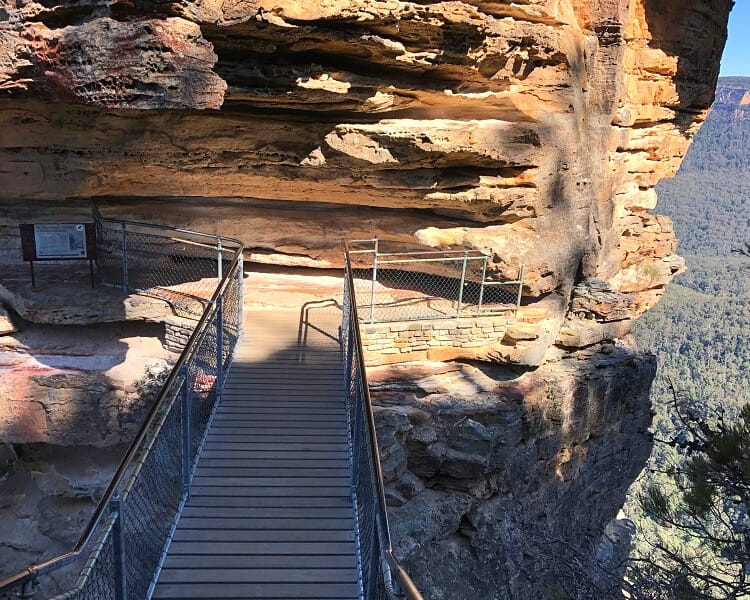
It’s quite a surreal experience to be crossing this little bridge and standing right next to the Three Sisters on the other side.
Be mindful that it can get very busy there on the weekends, so if you’d like to take photos and enjoy the views without the crowds, it’s best to get there early in the day.
7. Spooners Lookout
On your return, it’s a good idea to visit the Spooners Lookout via a signposted, short detour. It’s an extra 5 minutes, and the views of the valley and the Three Sisters are very much worth it.
This Lookout was named after an Australian politician, Eric S. Spooner, who opened part of the Prince Henry Cliff Walk back in October 1934.
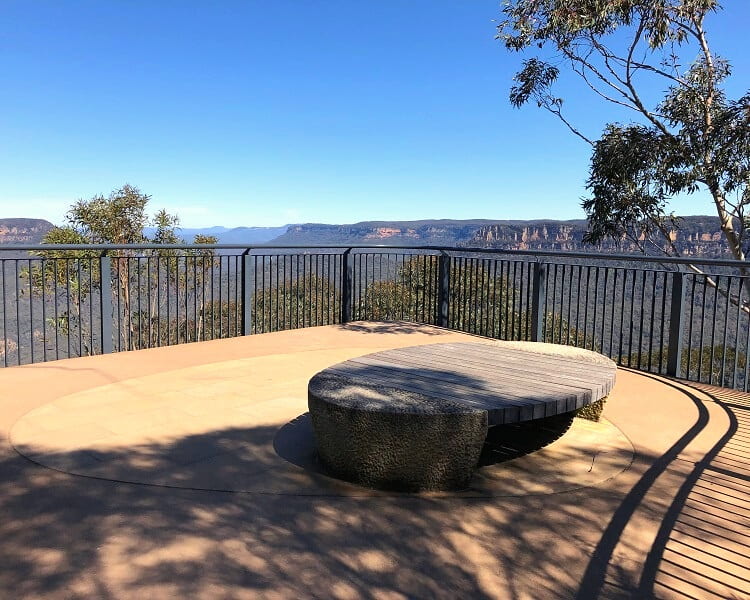
The Spooners Lookout is located only 200m from the Visitor Information Centre at Echo Point, and it is also wheelchair accessible.
And that marks the end of the Three Sisters Walk, an easy but scenic walking trail suitable for people of all ages and fitness levels.
About the Three Sisters
For many tourists visiting the Blue Mountains for the first time, the Three Sisters is on top of the list of sights to visit.
They form a rather unusual and unique rock formation on the northern escarpment of the Jamison Valley, close to Katoomba.
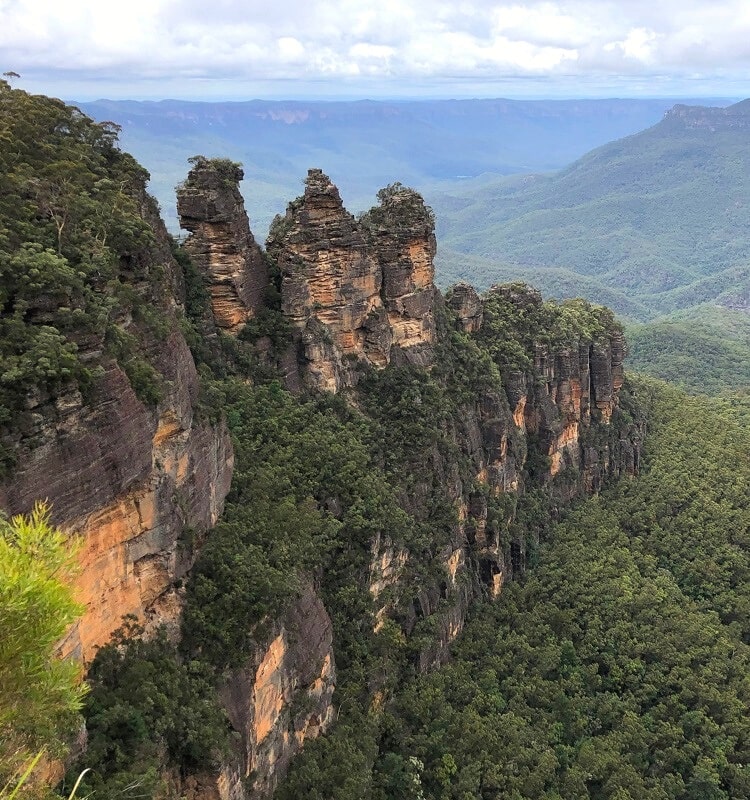
The Three Sisters were formed by land erosion by wind, rain, and rivers, causing the sandstone cliffs surrounding the Jamison Valley to be slowly broken up over time.
The best views of the Three Sisters can be enjoyed from the Echo Point lookout, but it’s much more exciting to meet the Three Sisters in person by doing the Three Sisters Walk.
The Legend Behind the Three Sisters
Various Aboriginal stories exist about why this unique rock formation is called the Three Sisters.
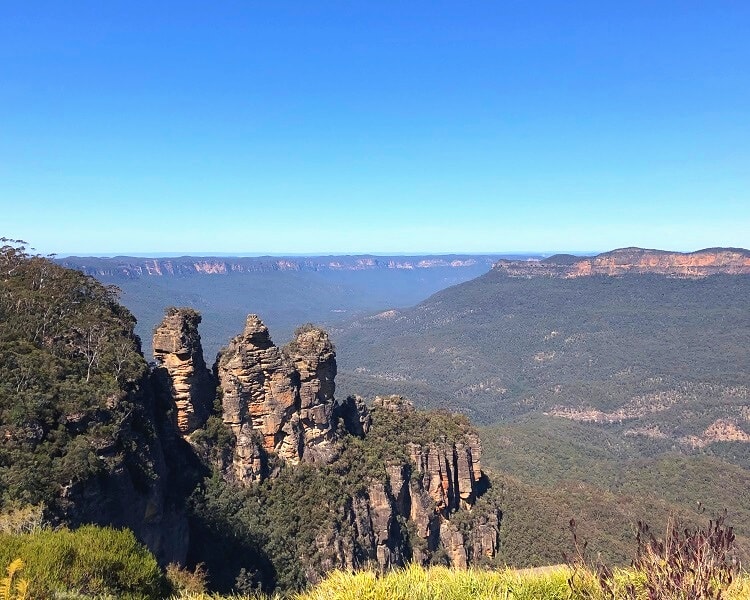
Perhaps the most widely adopted version is that three sisters named Meehni, Wimlah and Gunnedoo were turned into stone as a result of a tribal conflict.
The three ladies lived in the Jamison Valley as members of the Katoomba tribe and had fallen in love with three brothers from the neighbouring Nepean Tribe.
Tribal law, however, blocked marriage between the brothers and the sisters, which prompted the brothers to capture the sisters.
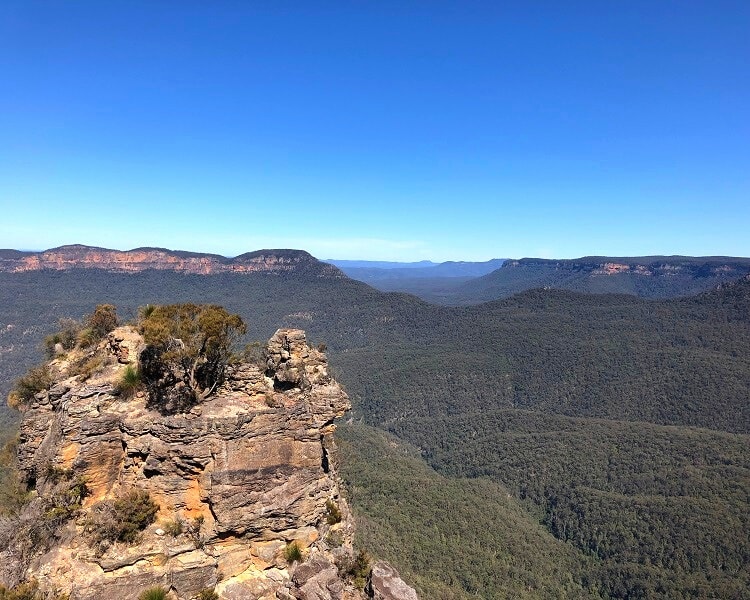
An elder turned them into stone to protect the sisters from any harm during the tribal battle that followed.
As the elder didn’t survive the battle, and no one else was able to reverse the spell, the Three Sisters remained to be the unique rock formation that it still is today.
